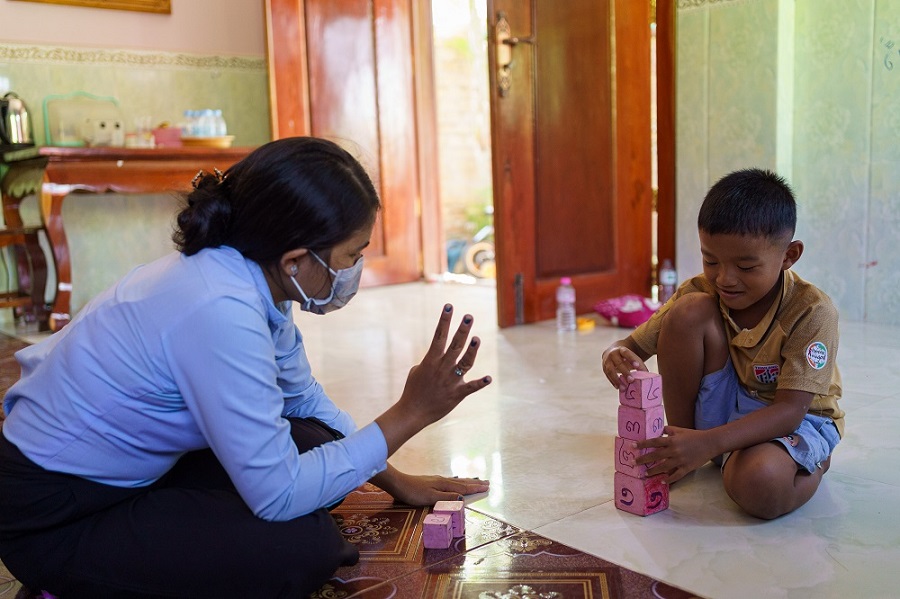
One in two of Cambodia’s children have experienced severe physical discipline, and one in four has experienced emotional abuse. UNICEF Cambodia has been working with the Cambodian government to help children recover and rebuild – and after months of collaborative effort, there is much to celebrate. Formally trained social workers are now present in all of Cambodia’s 25 provinces.
UNICEF and the government have deployed extra social workers – and upskilled existing social workers – to better respond to child protection issues through a larger, more effective child protection system. This new process is critical in times of COVID-19, as pandemic-related isolation measures, financial stress, and health challenges are leaving children more exposed to violence than ever.
In times like these, social workers can be a lifeline for children and families by defending their health and wellbeing.
Prior to this collaboration, Cambodia’s social service workforce was small, and for the most part, lacked formal training. Those that were able to respond effectively were concentrated in less than one-third of the country’s provinces, leaving the majority of Cambodia’s children with little to no access to support. Even before COVID-19, UNICEF and the government’s Ministry of Social Affairs, Veterans and Youth Rehabilitation (MoSVY) were working on filling this gap by recruiting more social workers – but once the pandemic began to spread, this work took on new urgency.
Building on pre-pandemic work – where UNICEF was supporting the MoSVY to deploy 17 social workers in five provinces – the two teams began working closely with the National Institute of Social Affairs (NISA), which runs academic courses on social work. Together, these teams recruited 20 more graduates to fill the 20 remaining provinces, all of whom were given additional training prior to their deployment.
Today, these social workers are supporting the existing reintegration programme of children from residential care, while streamlining child protection referrals across agencies. Social workers are also supporting MoSVY staff to conduct assessments of residential care facilities and identifying their challenges and needs. Based on these analyses, MoSVY is planning visits to specific residential care institutions that have reported challenges or require additional support. UNICEF is also engaging with the MoSVY to find a longer-term solution to fill social work capacity gaps at the sub-national level.
All of this work builds on years of commitment to ending violence against children in Cambodia. The country joined End Violence as Pathfinding in April 2019, but even prior, the country had a long-standing mission to prevent and respond to child abuse and exploitation. In 2013, for example, Cambodia was the first country in the Asia-Pacific to conduct a national survey on violence against children. A few years later, the government developed and implemented the inter-ministerial Action Plan to Prevent and Respond to Violence Against Children, engaging adolescents and young people throughout the development process. And in 2018, the Ministry of Social Affairs, Veterans and Youth Rehabilitation hosted the East Asia and the Pacific Regional Conference towards the Implementation of the INSPIRE: Seven Strategies for Ending Violence Against Children.
End Violence applauds these efforts in Cambodia, which are made possible through both the commitment of the government and the dedication of our Cambodian partners.
Read more about UNICEF Cambodia’s work in their latest quarterly update.

